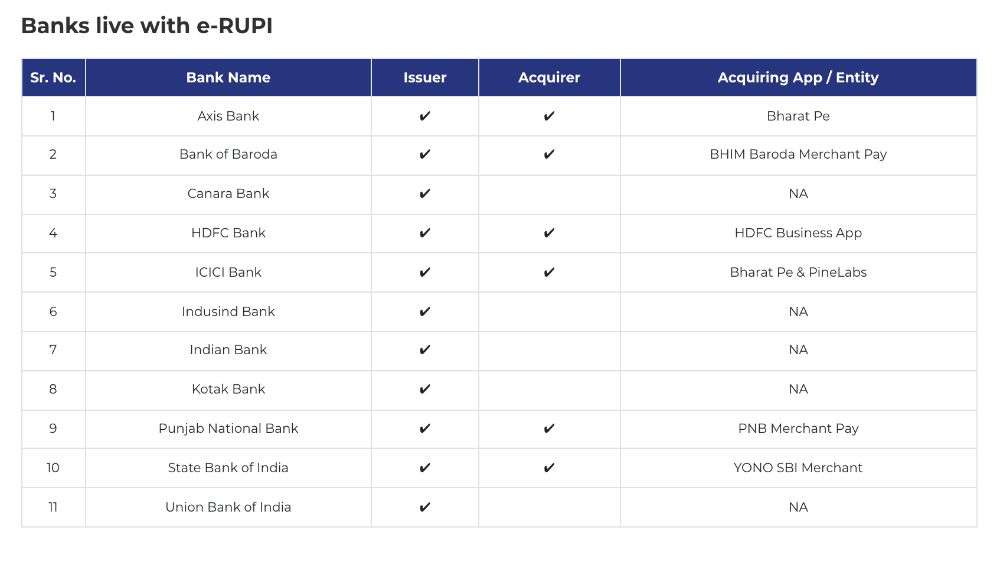India to get new digital payment mode with launch of e-RUPI: What’s new and how does it work – Times of India
With e-RUPI, it can be expected that the ‘unbanked’ section of our society will easily get access to financial support for health services, child welfare, medicines, fertilizer subsidies and more.
What is e-RUPI and what’s new
The new digital payment mode– e-RUPI– is basically a prepaid voucher that can be issued directly to citizens after verifying mobile number and identity. Instead of putting cash in someone’s bank account, a prepaid e-RUPI voucher will be delivered in the form of a QR code or SMS string-based e-voucher to the beneficiary’s mobile number.
This QR code or SMS voucher can be used only once by the person on whose name it has been issued. The beneficiary can redeem the voucher without a card, digital payments app or internet banking access, at the service provider. Also, the payment can only be processed after the service has been provided to the beneficiary.
The biggest advantage is that there’s no need to use any app or have access to internet banking to use this service. So, anyone with any kind of mobile phone having a valid phone number can walk-in with an e-RUPI SMS or QR code to get service. Also, as it’s a prepaid voucher, the beneficiary already has access to the money when required. There’s no physical interface by anyone in the payment process and the entire transaction is digital, cashless and contactless.
What services are covered under e-RUPI
The government wants to use e-RUPI as a “leak-proof delivery of welfare services” that can used for delivering services under schemes meant for providing drugs and nutritional support under Mother and Child welfare schemes, TB eradication programmes, drugs and diagnostics under schemes like Ayushman Bharat Pradhan Mantri Jan Arogya Yojana, fertilizer subsidies and more.
e-RUPI can be used by corporates too for employee benefits
The private sector can use e-RUPI vouchers as part of their employee welfare and corporate social responsibility programmes. Your office may issue e-RUPI vouchers to cover travel, food, healthcare, etc. The concept is similar to how coupon and meal passes work at your office.
Which banks are supporting e-RUPI
Right now, there are 11 banks supporting e-RUPI. Note that some banks can only issue e-RUPI vouchers but cannot accept them. Thankfully, major banks like State Bank of India, ICICI Bank, HDFC Bank, Punjab National Bank and others are fully supporting e-RUPI for issuing e-RUPI coupons as well as redeeming them.
Banks that are fully supporting e-RUPI: State Bank of India, ICICI Bank, HDFC Bank, Punjab National Bank, Axis Bank and Bank of Baroda.
Banks that will only issue e-RUPI coupons: Canara Bank, Indusind Bank, Indian Bank, Kotak Bank and Union Bank of India.

Who has made e-RUPI
The entire digital payments ecosystem in India has come together to enable e-RUPI. National Payments Corporation of India (NPCI) along with the Department of Financial Services (DFS), National Health Authority (NHA), Ministry of Health and Family Welfare (MoHFW), and 11 partner banks has introdcued e-RUPI.
For all the latest Technology News Click Here
For the latest news and updates, follow us on Google News.
